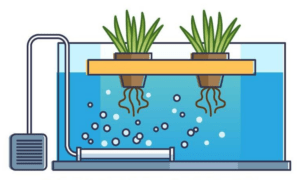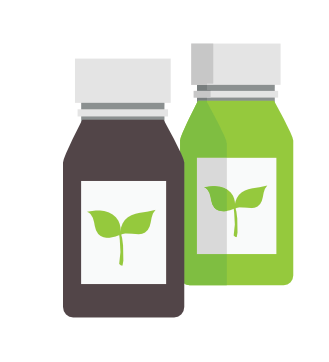The Water Guide

PH
pH is a measure of the acidity or alkalinity of a solution, and it plays a critical role in hydroponic systems as it directly impacts nutrient availability to plants. The optimal pH range for most hydroponic crops falls between 5.5 and 6.5. Monitoring and adjusting pH levels regularly are essential tasks in hydroponic gardening. To adjust pH, pH up or pH down solutions can be used to raise or lower pH levels respectively, while pH buffering agents help stabilize pH over time. Additionally, incorporating pH meters or test kits into your hydroponic setup allows for accurate and timely adjustments, ensuring that your plants can efficiently absorb nutrients for optimal growth and health.
EC
Electrical Conductivity (EC) measures the concentration of dissolved salts or minerals in a hydroponic nutrient solution, indicating its overall strength. To measure EC in a hydroponic system, use an EC meter, also known as a conductivity meter or TDS meter, which measures the electrical conductivity of the solution and converts it into an EC reading. This allows growers to monitor and adjust nutrient levels accurately, ensuring optimal nutrient concentrations for healthy plant growth.
Water Temperature
In hydroponic systems, the optimal water temperature typically falls within the range of 18°C to 24°. This temperature range promotes healthy root growth, nutrient uptake, and microbial activity, ensuring optimal plant development and overall system performance.
Nutrients

In hydroponic systems, nutrients are essential for supporting plant growth and development as they replace the nutrients typically found in soil. A balanced nutrient solution typically includes macronutrients such as nitrogen, phosphorus, and potassium, as well as micronutrients like calcium, magnesium, and iron. To create an effective nutrient plan, it’s crucial to monitor the pH and electrical conductivity (EC) of the nutrient solution regularly, adjusting them as needed to ensure optimal nutrient uptake by the plants. Additionally, following manufacturer recommendations and considering the specific needs of the plants being grown are key factors in formulating a successful nutrient plan for hydroponic systems.
Keeping it Clean
Keeping your hydroponic system clean is crucial for ensuring the health and vitality of your plants. A clean system reduces the risk of disease, algae growth, and nutrient imbalances that can hinder plant growth and yield. One effective way to maintain cleanliness is by using water filters. Water filters help remove impurities, sediments, and organic matter from the nutrient solution, ensuring that your plants receive only clean, properly balanced water. By incorporating water filters into your hydroponic setup, you can optimize plant health, minimize maintenance, and maximize yields.
